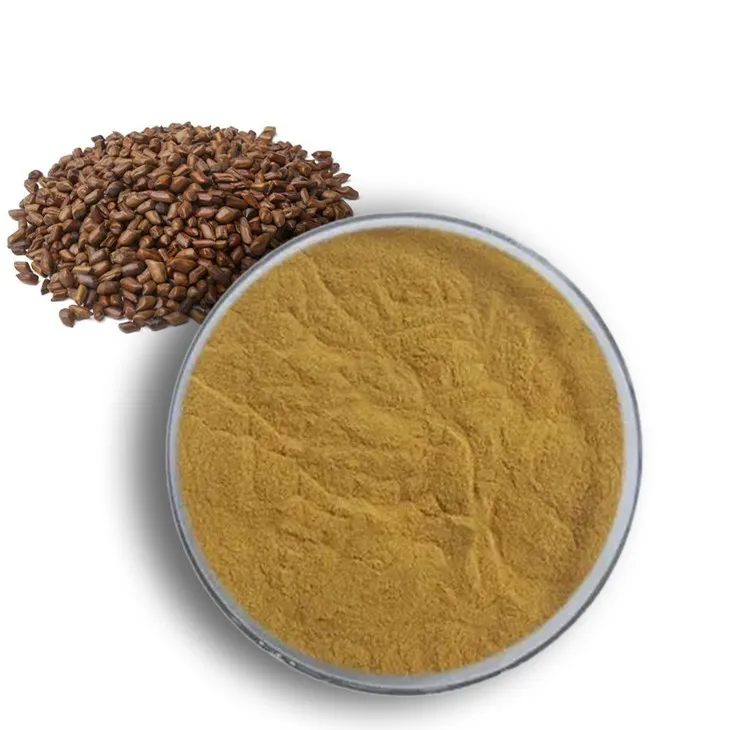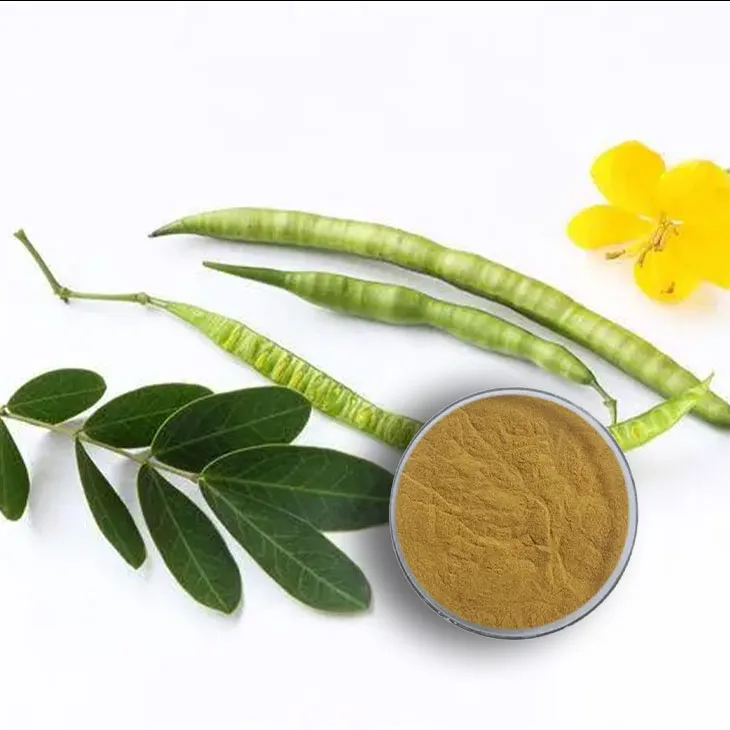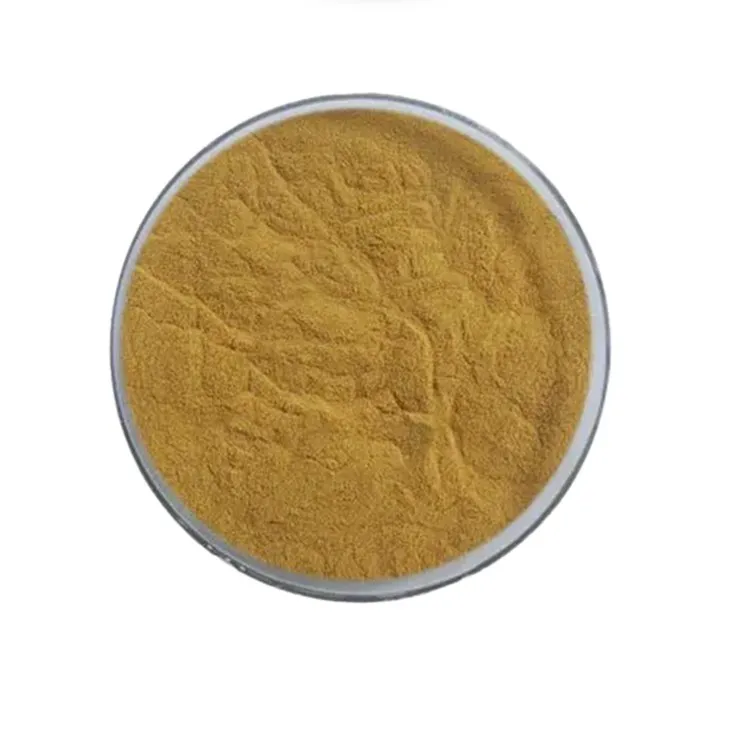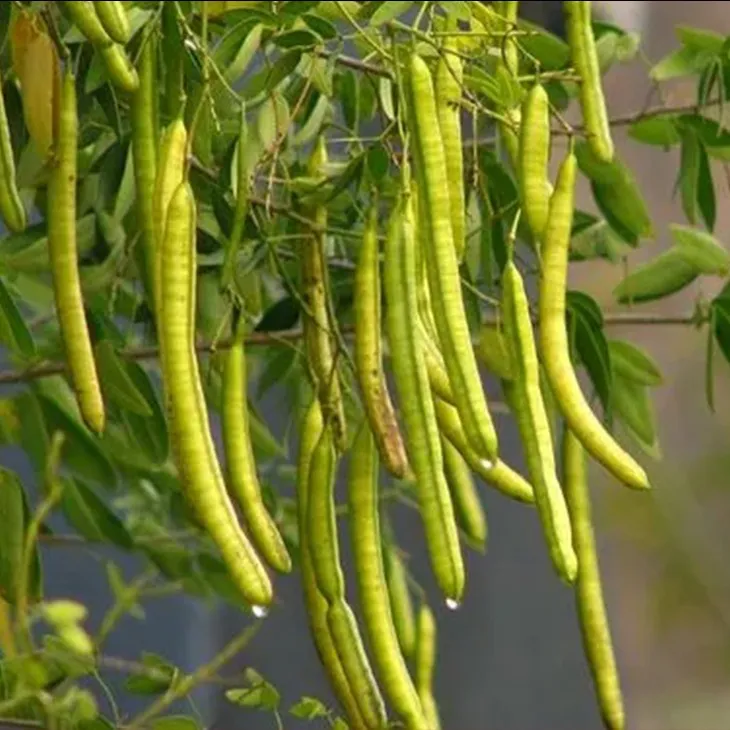- 0086-571-85302990
- sales@greenskybio.com
Bulk purchase of cassia seed extract.
2024-12-02

1. Introduction
Cassia Seed Extract has emerged as a highly valuable ingredient in various industries. Its wide - ranging applications, from traditional medicine to the cosmetic and food sectors, have led to an increasing interest in its bulk purchase. This article aims to provide a comprehensive understanding of the various aspects related to the bulk purchase of Cassia Seed Extract.

2. The Supply Chain of Cassia Seed Extract
2.1 Raw Material Sourcing
The journey of cassia seed extract begins with the sourcing of raw materials. Cassia seeds are typically harvested from plants mainly grown in certain regions. These regions are often selected due to their favorable climatic conditions and soil quality. For instance, some areas in Asia are known for their high - quality cassia seed production.
- Farmers and Suppliers: Farmers play a crucial role in the initial stage. They are responsible for the cultivation and harvesting of cassia seeds. Once harvested, the seeds are then sold to suppliers. These suppliers may be local traders or larger agricultural companies.
- Quality Control at the Source: It is essential to ensure the quality of the raw cassia seeds at the source. This includes checking for factors such as seed purity, absence of contaminants, and proper maturity. Any deviation in these aspects can have a significant impact on the final extract quality.
2.2 Processing and Extraction
After the raw materials are sourced, the next step is processing and extraction.
- Processing Facilities: Specialized processing facilities are required for the extraction of cassia seed extract. These facilities need to adhere to strict hygienic and quality control standards. The equipment used in these facilities must be capable of efficiently extracting the active components from the seeds.
- Extraction Methods: There are different extraction methods available, such as solvent extraction and supercritical fluid extraction. Solvent extraction is more commonly used, but supercritical fluid extraction is gaining popularity due to its ability to produce a purer extract with fewer solvent residues.
- Quality Assurance during Processing: Throughout the processing and extraction stages, quality assurance measures are implemented. This involves regular testing of the intermediate products to ensure that the extraction process is proceeding as expected and that the resulting extract meets the required specifications.
2.3 Packaging and Distribution
Once the cassia seed extract is produced, it needs to be packaged and distributed.
- Packaging: The packaging of the extract is crucial to maintain its quality. It should be able to protect the extract from factors such as light, moisture, and air. Common packaging materials include dark - colored glass bottles or laminated aluminum pouches.
- Distribution Channels: The distribution of cassia seed extract can involve multiple channels. It can be sold directly to manufacturers who use it as an ingredient in their products, or it can be distributed through wholesalers and distributors. Logistics play an important role in ensuring that the extract reaches its destination in a timely and proper manner.

3. Certifications and Standards in Bulk Purchases
3.1 Importance of Certifications
Certifications play a vital role in the bulk purchase of cassia seed extract.
- Quality Assurance: Certifications such as Good Manufacturing Practice (GMP) ensure that the extraction process and the final product meet certain quality standards. This gives buyers confidence in the quality of the extract they are purchasing.
- Safety and Regulatory Compliance: Certifications also indicate that the product is safe for use. In the case of cassia seed extract, which may be used in food and pharmaceutical applications, compliance with relevant safety regulations is essential. For example, in the food industry, it may need to comply with food additive regulations.
- Market Acceptance: Having the appropriate certifications can enhance the market acceptance of the cassia seed extract. Manufacturers are more likely to choose a product with recognized certifications when formulating their products.
3.2 Types of Standards and Certifications
There are several types of standards and certifications relevant to cassia seed extract.
- Organic Certifications: If the cassia seeds are organically grown, an organic certification is important. This indicates that the seeds are grown without the use of synthetic pesticides and fertilizers, which may be preferred in certain markets, especially in the natural and organic product sectors.
- ISO Certifications: International Organization for Standardization (ISO) certifications, such as ISO 9001 for quality management and ISO 22000 for food safety management, can also be applicable to cassia seed extract producers. These certifications demonstrate the company's commitment to quality and safety management systems.
- Pharmacopoeial Standards: In the pharmaceutical industry, compliance with pharmacopoeial standards is necessary. These standards define the quality, purity, and identity of the cassia seed extract used in medicinal products.

4. Benefits of Bulk Purchasing Cassia Seed Extract
4.1 Cost - effectiveness
One of the primary benefits of bulk purchasing is cost - effectiveness.
- Lower Unit Cost: When purchasing in large quantities, the unit cost of cassia seed extract is often significantly lower. This is because suppliers can offer volume discounts. The savings in cost can be substantial, especially for manufacturers who use large amounts of the extract in their production processes.
- Economies of Scale: Bulk purchasing also allows for economies of scale in other aspects such as transportation and storage. For example, shipping a large quantity of extract in a single shipment can reduce per - unit transportation costs.
4.2 Supply Stability
Another advantage is supply stability.
- Ensuring Continuous Production: By purchasing in bulk, manufacturers can ensure a continuous supply of cassia seed extract for their production lines. This is particularly important for industries where a consistent supply of ingredients is crucial for uninterrupted production.
- Long - term Contracts: Bulk purchases often involve long - term contracts. These contracts can provide a sense of security for both the buyer and the seller. The buyer is assured of a stable supply, and the seller has a guaranteed customer for a certain period.
4.3 Customization and Quality Control
Bulk purchasing can also offer opportunities for customization and better quality control.
- Customized Specifications: Buyers can often negotiate customized specifications for the cassia seed extract when purchasing in large quantities. This allows them to get an extract that precisely meets their requirements in terms of active ingredient content, purity, etc.
- Enhanced Quality Monitoring: With a large - volume purchase, buyers have more influence over the quality control process. They can work more closely with suppliers to ensure that the extract meets their quality standards through more frequent inspections and testing.

5. Risks Associated with Bulk Purchasing Cassia Seed Extract
5.1 Quality Variability
Despite the efforts in quality control, there can still be risks of quality variability in bulk purchases.
- Seasonal and Geographic Factors: Cassia seed quality can be affected by seasonal and geographic factors. Seeds harvested in different seasons or from different regions may have different chemical compositions. This can lead to variations in the quality of the extract.
- Supplier - related Issues: If the supplier does not have strict quality control measures in place, there is a risk of receiving batches of extract with inconsistent quality. This can pose problems for manufacturers who require a consistent product for their formulations.
5.2 Market Volatility
The market for cassia seed extract can be volatile, which poses risks for bulk purchasers.
- Price Fluctuations: The price of cassia seed extract can be subject to significant fluctuations due to factors such as changes in supply and demand, crop yields, and market speculation. A sudden increase in price can impact the cost - effectiveness of a bulk purchase.
- Supply Disruptions: Natural disasters, political instability, or other unforeseen events can disrupt the supply of cassia seeds and, consequently, the production of the extract. This can leave bulk purchasers with shortages and potential production disruptions.
5.3 Regulatory Changes
Regulatory changes can also create risks for bulk purchasers.
- New Regulations: Governments may introduce new regulations regarding the production, use, or labeling of cassia seed extract. For example, new safety requirements or restrictions on certain applications can affect the marketability of the extract.
- Compliance Costs: Meeting new regulatory requirements may involve additional costs for both suppliers and buyers. This can impact the overall cost - benefit analysis of a bulk purchase.
6. Conclusion
In conclusion, the bulk purchase of cassia seed extract is a complex but potentially rewarding endeavor. Understanding the supply chain, the importance of certifications and standards, as well as the benefits and risks involved is crucial for making informed purchasing decisions. By carefully considering these aspects, buyers can optimize their purchases of cassia seed extract, ensuring a reliable supply of high - quality ingredient for their respective industries.
FAQ:
1. What are the main sources of raw materials for cassia seed extract?
Cassia seeds are mainly sourced from the Cassia plant. These plants are typically grown in specific regions with suitable climates. For example, some are cultivated in Asia, where the environmental conditions are favorable for their growth. The quality of the raw materials can also be affected by factors such as soil quality, sunlight exposure, and water availability during the growth process.
2. What certifications should be considered when making a bulk purchase of cassia seed extract?
When making a bulk purchase, certifications such as GMP (Good Manufacturing Practice) are important. GMP ensures that the manufacturing process of the cassia seed extract meets certain quality and safety standards. Organic certifications can also be relevant if the extract is required to be organically sourced. This indicates that the raw materials were grown without the use of synthetic pesticides and fertilizers, and the extraction process adheres to organic standards.
3. What are the potential benefits of buying cassia seed extract in bulk?
Buying in bulk can often lead to cost savings. Suppliers may offer discounts for large - quantity purchases. It also ensures a continuous supply for industries that rely on cassia seed extract, such as the pharmaceutical or food supplement industries. Additionally, it can simplify the procurement process, reducing administrative and logistical efforts associated with multiple small - quantity purchases.
4. What are the risks associated with bulk purchasing of cassia seed extract?
One of the risks is the potential for quality variation. If not properly managed, a large batch may contain sub - standard or contaminated product. There is also the risk of market fluctuations. If the market price of cassia seed extract drops significantly after a bulk purchase, it can result in financial losses. Storage can also be an issue, as improper storage conditions may lead to spoilage or a decrease in the potency of the extract.
5. How can one ensure the quality of cassia seed extract in a bulk purchase?
To ensure quality, it is essential to work with reliable suppliers. These suppliers should be able to provide detailed information about their sourcing and manufacturing processes. Conducting regular quality inspections, both at the source and upon receipt of the product, is also crucial. Analyzing samples for purity, potency, and the absence of contaminants can help in maintaining the quality of the bulk - purchased cassia seed extract.
Related literature
- Cassia Seed Extract: Properties and Applications"
- "The Supply Chain Management of Botanical Extracts: A Case Study of Cassia Seed Extract"
- "Quality Control in Bulk Purchase of Herbal Extracts: Focus on Cassia Seed Extract"
- ▶ Hesperidin
- ▶ citrus bioflavonoids
- ▶ plant extract
- ▶ lycopene
- ▶ Diosmin
- ▶ Grape seed extract
- ▶ Sea buckthorn Juice Powder
- ▶ Beetroot powder
- ▶ Hops Extract
- ▶ Artichoke Extract
- ▶ Reishi mushroom extract
- ▶ Astaxanthin
- ▶ Green Tea Extract
- ▶ Curcumin Extract
- ▶ Horse Chestnut Extract
- ▶ Other Problems
- ▶ Boswellia Serrata Extract
- ▶ Resveratrol Extract
- ▶ Marigold Extract
- ▶ Grape Leaf Extract
- ▶ blog3
- ▶ blog4
-
The best lemon juice powder in nature.
2024-12-02
-
Organic Vitamin K2 Powder Suppliers
2024-12-02
-
Bulk purchase of L - tyrosine.
2024-12-02
-
Vitamin K2 Manufacturers
2024-12-02
-
100% Pure Natural Rutin.
2024-12-02
-
Chinese Citrus Bioflavonoid Suppliers.
2024-12-02
-
Echinacea Extract
2024-12-02
-
Epimedium extract powder
2024-12-02
-
Kupilu Extract
2024-12-02
-
Kelp Extract Powder
2024-12-02
-
Marigold Extract
2024-12-02
-
Boswellia Serrata Extract
2024-12-02
-
Curcuma Longa Extract
2024-12-02
-
Yohimbine Bark Extract
2024-12-02
-
Nettle Root Extract
2024-12-02
-
Black Pepper Extract
2024-12-02





















